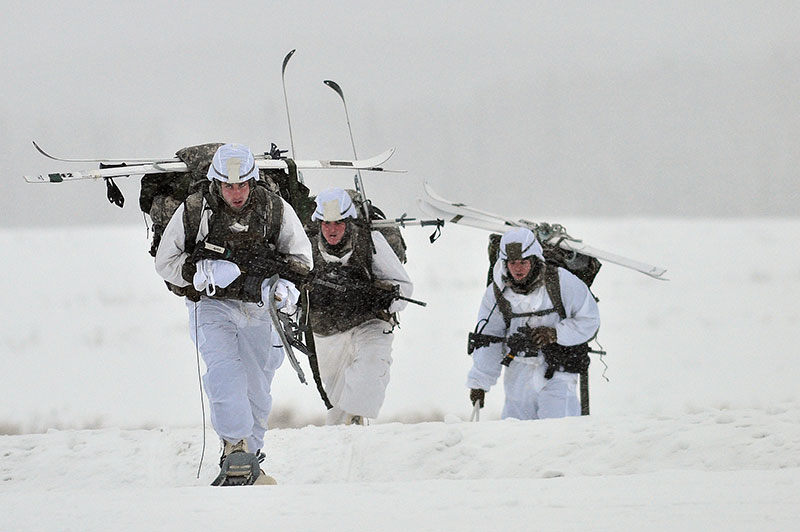U.S. Army paratroopers are sporting biometric data-collecting wearables nonstop for half a year as part of an ongoing research project to measure stress levels and examine the resiliency of soldiers operating in Arctic environments. As part of the research, about 1,000 paratroopers of the so-called “Spartan Brigade” – the nickname for the 4th Infantry Brigade Combat Team (Airborne), 25th Infantry Division based in Alaska – are wearing the device.
Read more US Army Uses Modified HoloLens 2 for Real-Life Video Game
The paratroopers have teamed up with WHOOP, a Boston-based human performance company, in a six-month study with the University of Queensland.
The WHOOP Strap is capable of 24/7 monitoring in an unobtrusive form factor that is able to withstand the rigors of military use while also being waterproof and sporting a 5-day battery life with on-the-go charging.
“Previous research has typically focused on investigating stress in laboratory settings using standardized stress tasks,” said Kristen Holmes, VP of Performance Science at WHOOP and Principal Investigator on the study. “We are carrying this study out in the field to better understand how personal, psychological, and situational factors can impact a soldier while training during extreme Arctic conditions. We are proud to support our troops in an innovative way and this data could be a critical tool for the military to improve soldier resiliency at a time when mental health issues and suicide rates are higher than ever.”
By providing the United States Army with more insight into individual physiology and the impacts of training in an extreme environment, soldiers will be better equipped to manage stress and ultimately, have higher readiness. All leaders from the squad level, NCOs, and above will have access to their paratroopers’ data, so they can adjust training and operational plans to maximize the health and readiness of their teams, WHOOP said in a press release.

“Imagine as a squad leader that you have a paratrooper that has had an abnormally low recovery for several days,” said the Spartan Command Sergeant Major Alex Kupratty, “Maybe your platoon has been in the field for weeks, or the paratrooper just returned from an Army school. Now, you have the data to better help them recover, or to adjust your training to match the team’s needs.”
The research project will analyze personalized data like heart rate variability, resting heart rate, cardiovascular strain, and respiratory rate to also create a biometric baseline for the Spartan Brigade grounded in overall resilience, stress, and sleep quality. Unlike blind studies, the participating paratroopers will have immediate access to their own data, as well as techniques to maximize recovery, and can make decisions using this feedback to optimize their personal performance.
Read more Pentagon Tells Soldiers to Leave Wearable Trackers at Home When Heading to Warzones
“WHOOP provides seamless and highly reliable biometric capture, thereby producing objective measures of sleep quality and recovery, which are of central importance to our research,” said Dr. William von Hippel, lead investigator on the study and professor at The University of Queensland. “Once the data are analyzed, we hope to uncover insights the military could leverage to enhance training regimens and maximize soldier preparedness.”









